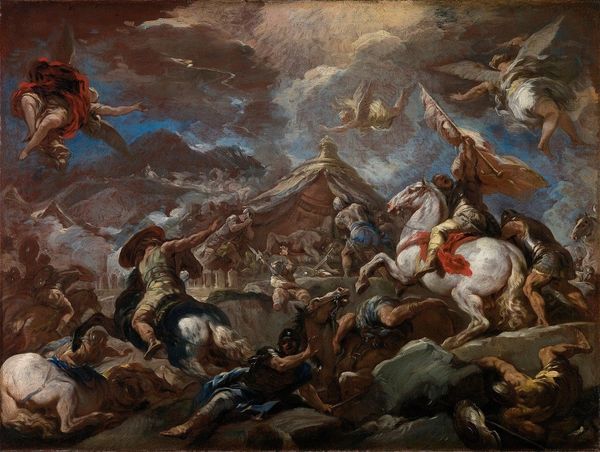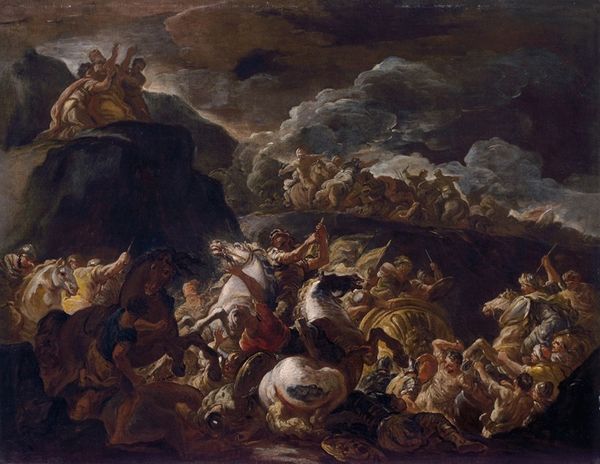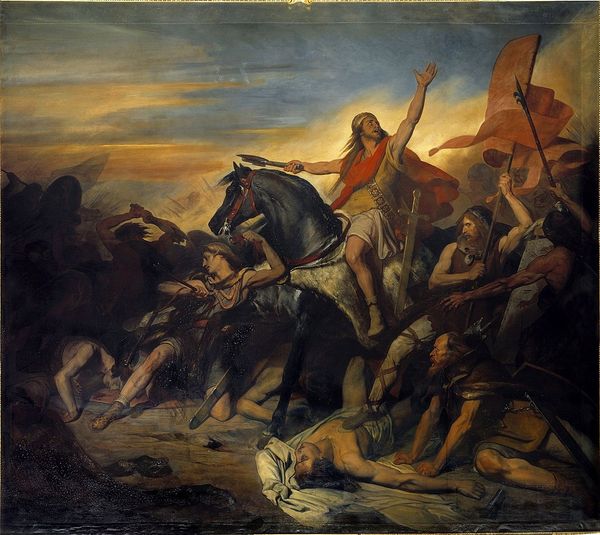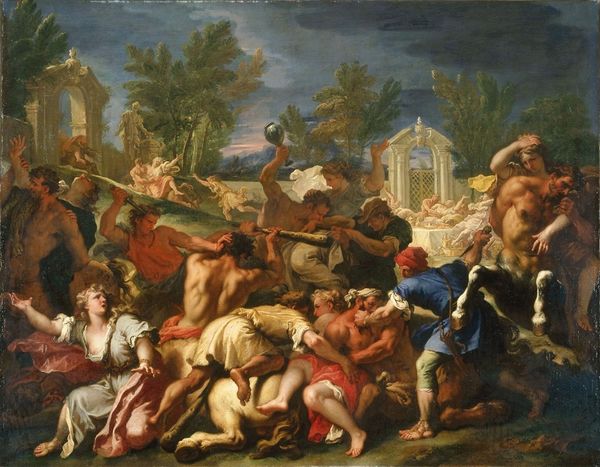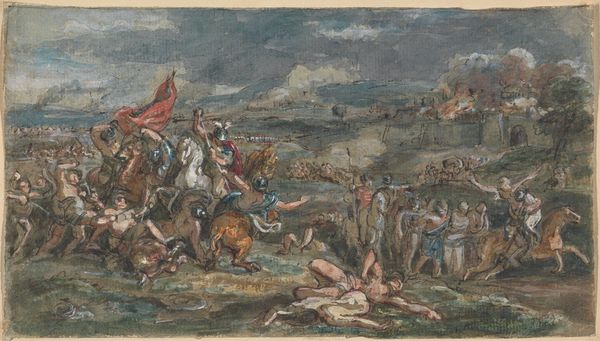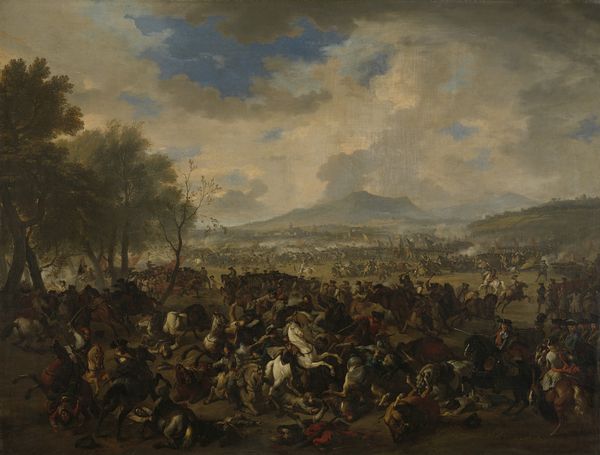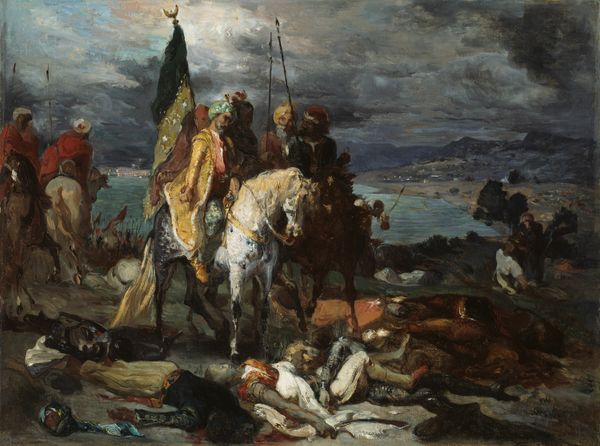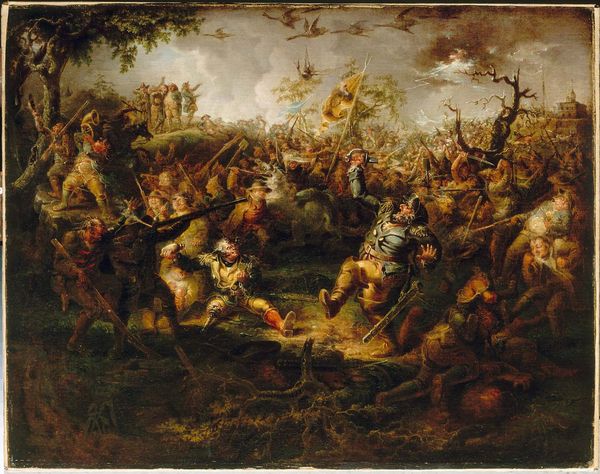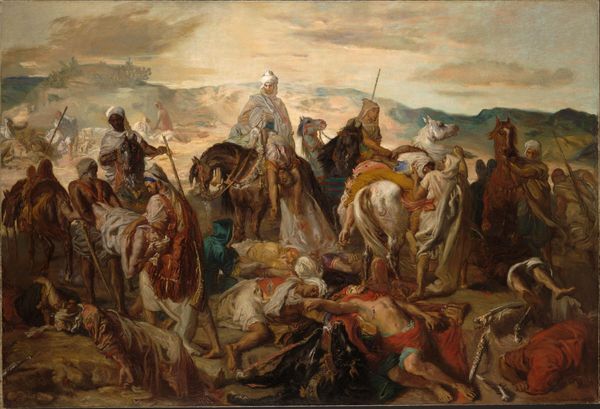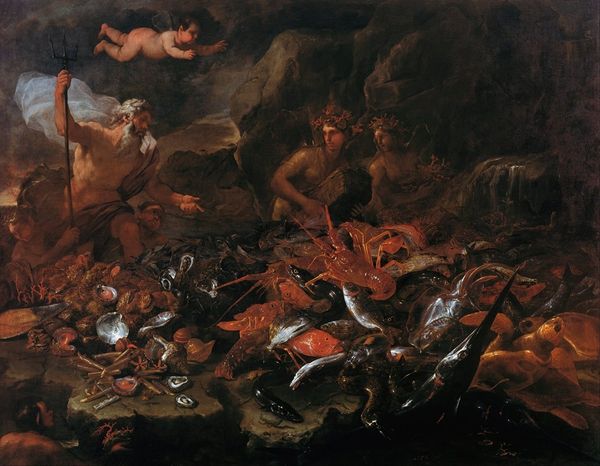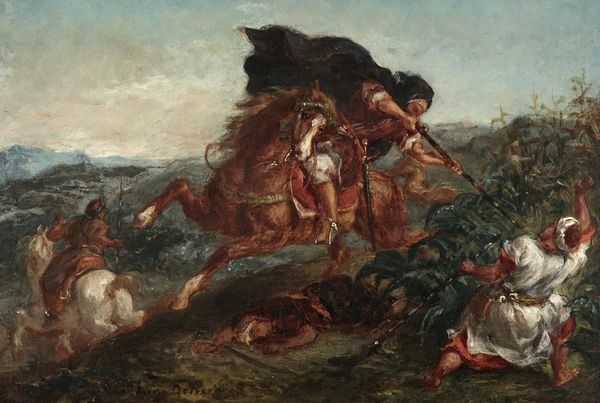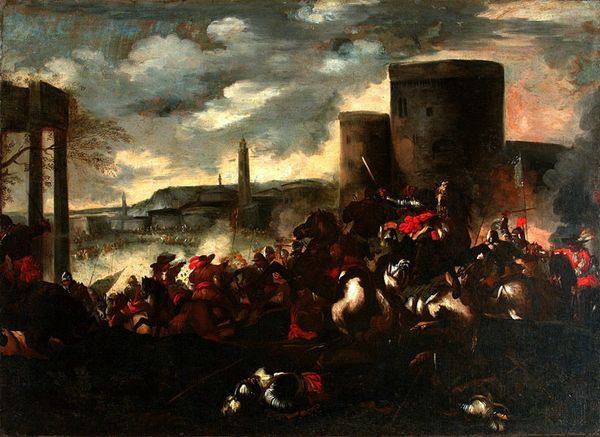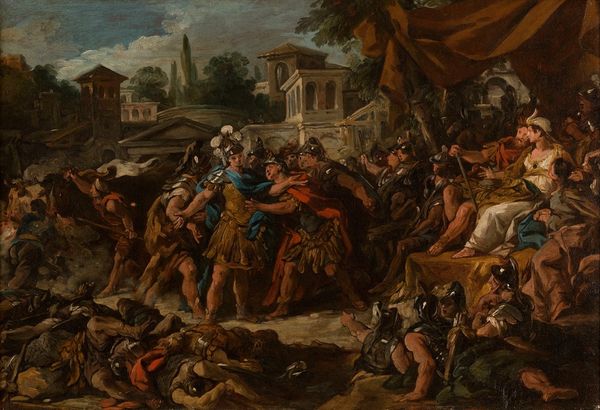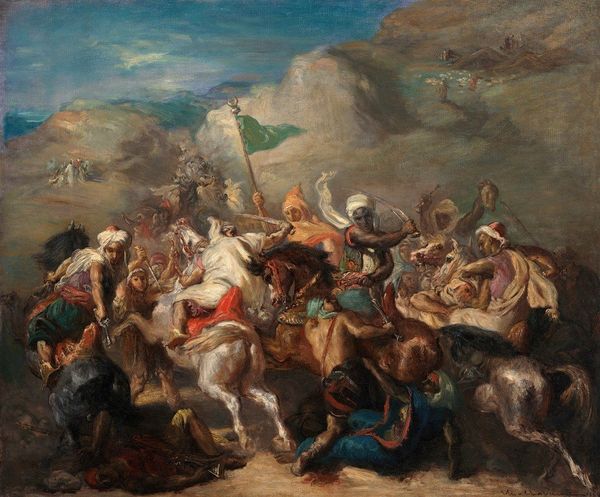
#
abstract painting
#
charcoal drawing
#
possibly oil pastel
#
charcoal art
#
oil painting
#
acrylic on canvas
#
underpainting
#
mythology
#
painting painterly
#
charcoal
#
watercolor
Copyright: Public domain
Editor: Here we have Salvator Rosa’s "A Cavalry Battle" from 1652. The oil paint is applied so thickly it brings an incredible sense of movement to the whole scene, a real whirlwind of conflict. How do you interpret this work? Curator: It's interesting to view Rosa through the lens of someone wrestling with power structures. The painting showcases the chaos and brutality of war, but it also begs the question: whose war is this? Whose interests are being served by this spectacle of violence? Editor: That’s a fascinating angle. I hadn't considered the sociopolitical commentary. It does feel almost glorifying despite the apparent suffering. Curator: Precisely. The artist’s biography is vital here. Rosa positioned himself as a rebel, against artistic conventions, against the patronage system… so how might that inform our understanding of his decision to paint such a scene? Does he critique those in power who orchestrate such conflicts? The almost anonymous nature of the soldiers makes them almost like puppets in a political game. Editor: That’s true, the details of individual faces are lost in the larger movement. What about the setting? It looks almost staged, or perhaps symbolic? Curator: The ruined classical architecture adds another layer, suggesting the fragility of even the most established structures when faced with the brute force of conflict, reflecting, perhaps, on contemporary social upheaval and calling to account failing political foundations. Perhaps a statement on humanity’s destructive impulses but, again, we must examine our position in relation to the artist himself, his role and his intentions when staging this drama on canvas. Editor: This has given me so much to consider regarding art’s engagement with power. Curator: Indeed. Rosa makes us question what it is to be complicit or rebellious through a single brushstroke. A powerful example of art history meeting political reflection.
Comments
No comments
Be the first to comment and join the conversation on the ultimate creative platform.
